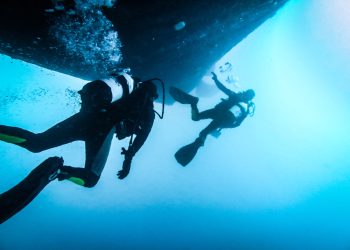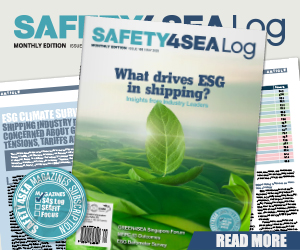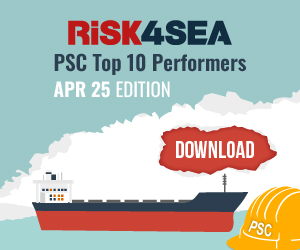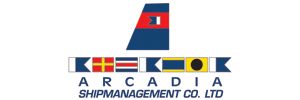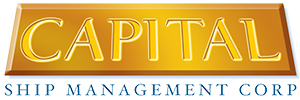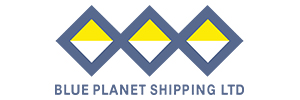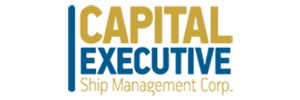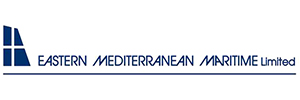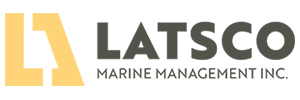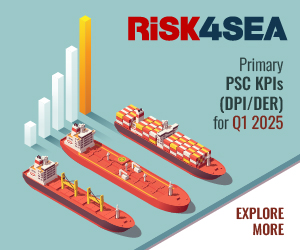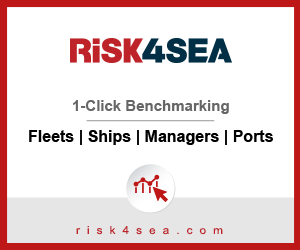In an era where maritime security is paramount, a Ship Security Plan (SSP) stands as a bulwark against potential threats to vessels and their crews. But what exactly does an SSP entail?
As the Panama Maritime Authority explains, all shipping companies shall develop, implement, and maintain a functional Ship Security Plan (SSP) aboard its ships in compliance with SOLAS Chapter XI-2, the ISPS Code.
The SSP is developed from the information compiled in the Ship Security Assessments0 (SSA). It ensures the application of measures onboard the ship designed to protect persons on board, the cargo, cargo transport units, ship’s stores, or the ship from all manner of risk security violations. The SSP shall be protected from unauthorized disclosure.
The Plan must be written in the working language or languages of the ship. If the language or languages used are not English, French, or Spanish, a translation into one of these languages must be included, preferably English.
The Plan must address, at least, the following (Part A 9.4 ISPS Code):
- Measures designed to prevent weapons, dangerous substances, and devices intended for use against people, ships, or ports, and the carriage of which is not authorized on board the ship.
- Identification of the restricted areas and measures for the prevention of unauthorized access.
- Measures for the prevention of unauthorized access to the ship.
- Procedures for responding to security threats or breaches of security, including provisions for maintaining critical operations of the ship or ship/port interface.
- Procedures for responding to any security instructions Contracting Governments may give at Security Level 3.
- Procedures for evacuation in case of security threats or breaches of security.
- Duties of shipboard personnel assigned security responsibilities and of other shipboard personnel on security aspects.
- Procedures for auditing the security activities.
- Procedures for training, drills, and exercises associated with the Plan.
- Procedures for interfacing with port facility security activities.
- Procedures for the periodic review and updating of the Plan.
- Procedures for reporting security incidents.
- Identification of the Ship Security Officer (SSO).
- Identification of the CSO including 24-hour contact details.
- Procedures to ensure the inspection, testing, calibration, and maintenance of security equipment provided on board, if any.
- Frequency of testing or calibration of security equipment provided on board, if any.
- Identification of the locations where the ship security alert system activation points are provided (this information should be kept elsewhere on board in a document known to the master, the SSO, and other shipboard personnel as decided by the Company).
- Procedures, instructions, and guidance on the use of the ship security alert system, including testing, activation, deactivation, resetting, and procedures to limit false alerts.
According to Part B 9.2 of the ISPS Code, the Ship Security Plan (SSP) must:
- Detail organizational structure of security for the ship.
- Detail the ship’s relationships with the Company, port facilities, other ships, and relevant authorities with security responsibility.
- Detail the communication systems to allow effective continuous communication within the ship and between the ship and others, including port facilities.
- Detail basic security measures for Security Level 1, both operational and physical, that will always be in place.
- Detail the additional security measures that will allow the ship to progress without delay to Security Level 2 and, when necessary, to Security Level 3.
- Provide for regular review, or audit, of the SSP and for its amendment in response to experience or changing circumstances.
- Detail reporting procedures to the Department of Maritime Security of the Maritime Authority contact points.
In addition, the SSP should establish the following, which relate to all Security Levels (Part B 9.7 ISPS Code):
- Duties and responsibilities of all shipboard personnel with a security role.
- Procedures of safeguards necessary to allow continuous communications to be maintained at all times.
- Procedures needed to assess the continuing effectiveness of security procedures and any security and surveillance equipment and systems, including procedures for identifying and responding to equipment systems failure or malfunction.
- Procedures and practices to protect security-sensitive information held in paper or electronic format.
- The type and maintenance requirements of security and surveillance equipment and systems, if any.
- Procedures to ensure the timely submission, and assessment, of reports relating to possible breaches of security or security concerns.
- Procedures to establish, maintain, and update an inventory of any dangerous goods or hazardous substances carried on board, including their location.
According to ISPS Code Part A 9.6, the Plan can be kept in an electronic format. In such a case, it must be protected by measures aimed at preventing unauthorized access, disclosure, deletion, destruction, or amendment (Part A 9.6 ISPS Code).
The Ship Security Plan should address the security measures to be taken at each Security Level covering:
- Access to the ship by ship’s personnel, passengers, visitors, etc.
- Restricted areas of the ship.
- Handling of cargo.
- Delivery of ship’s stores.
- Handling unaccompanied baggage.
- Monitoring the security of the ship.
Security levels and Declaration Of Security (DOS):
All Ship Security Plans (SSP) have to make provision for the three, internationally adopted, Security Levels:
- Security Level 1, normal; the level at which ships and port facilities will normally operate.
- Security Level 2, heightened; the level applying for as long as there is a heightened risk of a security incident.
- Security Level 3, exceptional; the level applying for the period of time when there is a probable or imminent risk of a security incident.
The SSP should include procedures and security measures for interfacing with ports, vessels, platforms, and facilities. The Company Security Officer (CSO) and the Ship Security Officers (SSO) are encouraged to contact the Port Facility Security Officer (PFSO) and develop a close working relationship.
When a vessel has a Security Level which is lower than the level established in the next port of call, then the Ship Security Officer will inform of the situation to the CSO, and the Security Level of the vessel will proceed to increase to the one established by the Port facility.
When a vessel has a Security Level which is higher than the level established in the next port of call, then the SSO and CSO will contact the PFSO and inform him about the situation in order to complete the Declaration of Security (DoS).
The Declaration of Security (Dos) has the purpose to ensure an agreement between the ship and the port facility or with other ships with which it interfaces as to the respective security measures each of them will undertake in accordance with the provisions of their respective approved security plans.
Companies are encouraged to complete a Declaration of Security (DoS) when:
- The ship is operating at a higher security level than the port facility or another ship it is interfacing with.
- There has been a security threat or security incident involving the ship or involving the port facility, as applicable.
- The ship is at a port which is not required to have and implement an approved port facility security plan.
- The ship is conducting ship-to-ship activities with another ship not required to have and implement an approved security plan.
- When the Ship Security Plan (SSP) provides any other measures.
The Declarations of Security (DoS) shall address the security requirements that could be shared between a port facility and ship (or between ships) and shall state the responsibility for each and shall be acknowledged by the applicable port facility or ship.
All vessels transiting through High-Risk Areas (HRA) have to raise the Security Level according to their Ship Security Plan (SSP). Any change of security level or implementation of security measures is to be advised by e-mail to the relevant authority.
In case more information about the current security level in any port is needed, it is recommended to contact directly the local agent in such port.
Ship Security Officer (SSO):
The Ship Security officer (SSO) is a person designated by the Company Security Officer (CSO) responsible for the security of the ship, including implementation and maintenance of the ship security plan and for liaison with the Company Security Officer (CSO), Port Facility Security Officer, and relevant authority.
The SSO shall have the knowledge of, and receive formal training in, the elements of the ISPS Code.
Vessels engaged in international voyages in which the ISPS Code applies must have on board an SSO who shall be a management-level officer. It is highly recommended to give this duty to the Master, Chief Officer, Chief Engineer, or Second Engineer, who shall have completed an approved training course regarding the requirements and recommendations of the ISPS Code.
All Ship Security Officers (SSO) are hereby requested to maintain wide communication with the Company Security Officer (CSO) in order to comply with the measures established in the Ship Security Plan.
DO YOU KNOW?: Read in this series










































































































